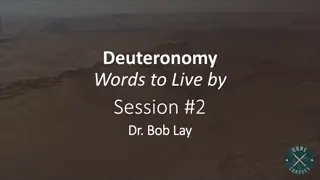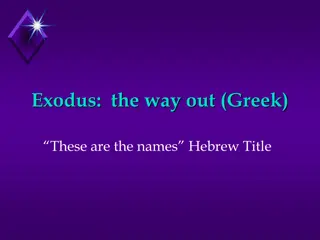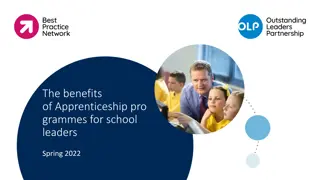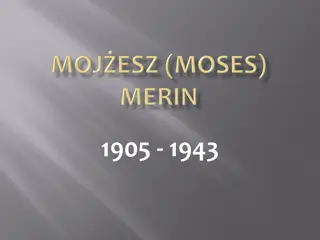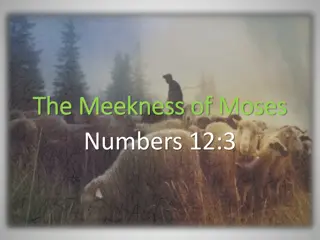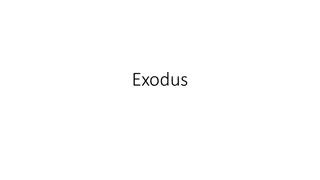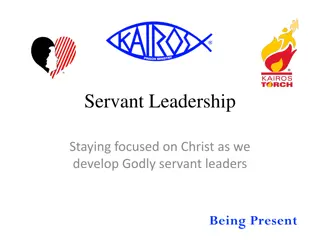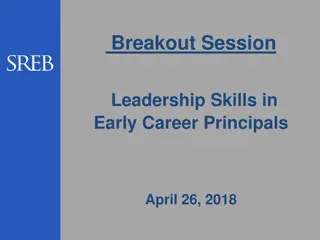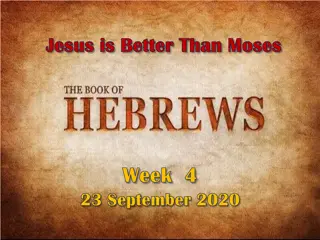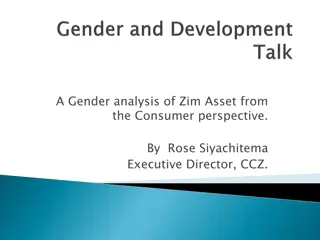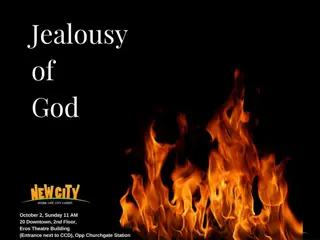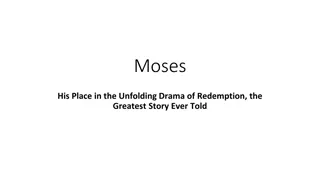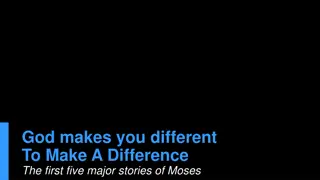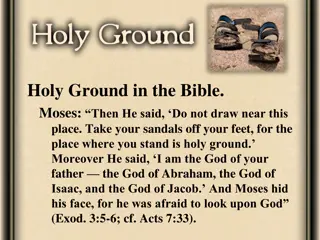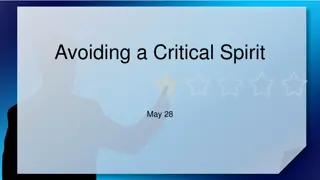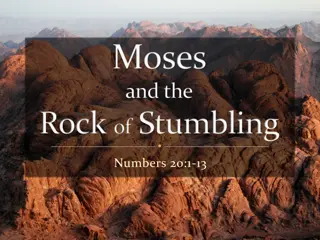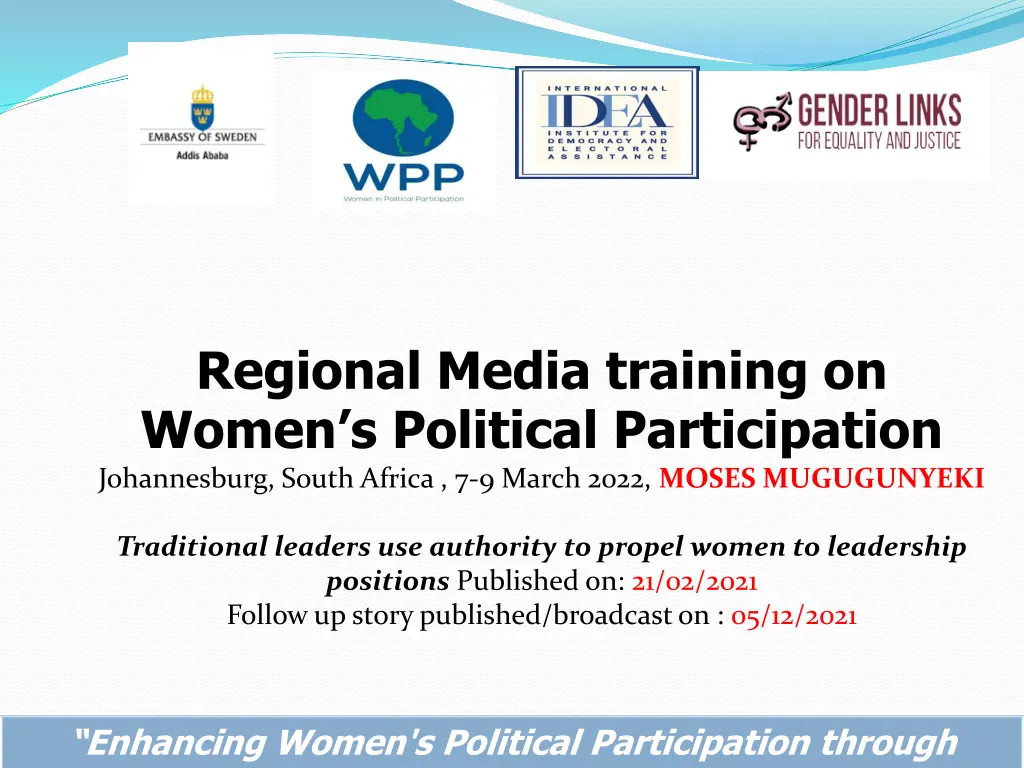
Empowering Gender Equality: Traditional Leaders Promoting Women's Political Participation
Explore how traditional leaders are championing gender equality in their communities to enhance women's political participation. Learn how media plays a crucial role in influencing society positively towards gender equality.
Download Presentation

Please find below an Image/Link to download the presentation.
The content on the website is provided AS IS for your information and personal use only. It may not be sold, licensed, or shared on other websites without obtaining consent from the author. If you encounter any issues during the download, it is possible that the publisher has removed the file from their server.
You are allowed to download the files provided on this website for personal or commercial use, subject to the condition that they are used lawfully. All files are the property of their respective owners.
The content on the website is provided AS IS for your information and personal use only. It may not be sold, licensed, or shared on other websites without obtaining consent from the author.
E N D
Presentation Transcript
Regional Media training on Women s Political Participation Johannesburg, South Africa , 7-9 March 2022, MOSES MUGUGUNYEKI Traditional leaders use authority to propel women to leadership positions Published on: 21/02/2021 Follow up story published/broadcast on : 05/12/2021 Enhancing Women's Political Participation through media.
SYNOPSIS The Constitution recognises the role of traditional leadership institutions. Traditional leaders are the closest to the people and, therefore, interact more with their subjects at the grassroots which make them very influential in society, especially in rural communities. It is against this background that I decided to write a story hoping to profile some traditional leaders who are part of male community leaders championing gender equality in their respective communities. I chose to write the story because TL can be great influencers in advocating for gender equality and equity. The article was relevant in that it was a follow-up of a story that I did previously on how GBV was an impediment to WPP. The article was timely as it was published a few days before commemorations of the IWD on March 8. Therefore, the story was more of raising awareness on gender equality. Enhancing Womens Political Participation through media
Background The media, apart from being informative and educative, play an important role in influencing society. By profiling traditional leaders who are gender champions, I wanted to also influence society in a positive way in as far as gender equality is concerned with regards to WPP. The story is meant to amplify the gender equality story as it is being told by the traditional leader. The write up highlights that some traditional leaders have embraced gender mainstreaming in their communities and are working with NGOs and govt to encourage WPP in rural communities. Enhancing Women s Political Participation through media
Key Objectives I intended to influence society through the write up by profiling male traditional leaders as gender champions. The sought to portray traditional leaders as role models who can influence society s perception on gender equality. By engaging traditional leaders to discuss on gender equality, the writer in some way was provoking the government to also connect with the traditional leaders in a similar fashion that can promote WPP. The story also tries to buttress the notion that men are critical in gender mainstreaming programmes, especially on issues which tend to violate the rights of women. Enhancing Women s Political Participation through media
Target audience The story was published in The Standard, which happens to have a huge readership among politicians, NGOs, embassies and UN agencies, that alone is enough testimony to show that the story could have reached its targeted audience Enhancing Women's Political Participation through media
Sources and accessibility I managed to talk to two male traditional leaders one from Nkayi and the other one from Buhera. From Chipinge, the writer managed to speak to a female traditional leader. Sources also included NGOs and government officials. Due to Covid-19 restrictions, most of the interviews were done via voice calls, social media platforms and e-mails. The story quoted four male and four female sources. Some NGOs facilitated some of the interviews, especially those involving traditional leaders Enhancing Women s Political Participation through media
Challenges encountered in putting the story together The COVID-19 pandemic negatively affected the processes of news gathering of this story, which saw me working remotely and to do more with less resources. Because of travel restrictions, I had to do most of the interviews online. For many others I used WhatsApp and voice calls. It was not easy to satisfy the editors to publish the story, but at the end of the day it was published, thanks to the research and number of sources used. Enhancing Women's Political Participation through media
Impact Although the impact of the story was not instant, the story received some acknowledgements on Facebook and Twitter through likes and retweets. The Standard Facebook and Twitter platforms have huge readership with more than 157 000 and 68 000 followers respectively. NGOs and colleagues also reposted on Facebook and retweeted the story on social media. WALPE said they were going to convene a meeting with TL and asked the reporter to take it from there. Padare have shown their willingness to have us profile their work. Last week [March 7], we had a story titled Padare advocates for female VP. Enhancing Womens Political Participation through media
Feedback Most of the feedback was on social media platforms. The majority of people who contributed to the feedback are people working with NGOs as shown in illustrations. Some of the feedback was in the form of likes. Enhancing Women's Political Participation through media
Follow up story published A follow-up story was done on the role of traditional leaders in fighting GBV. It was titled Traditional leaders should lead GBV fight In one of my articles I had highlighted how GBV is discouraging women s participation in politics. If traditional leaders front the fight against GBV, we can have more women participating in politics. The story was published in December 2021 as part of the 16 Days Against Gender-Based Violence campaign. Enhancing Women's Political Participation through media

